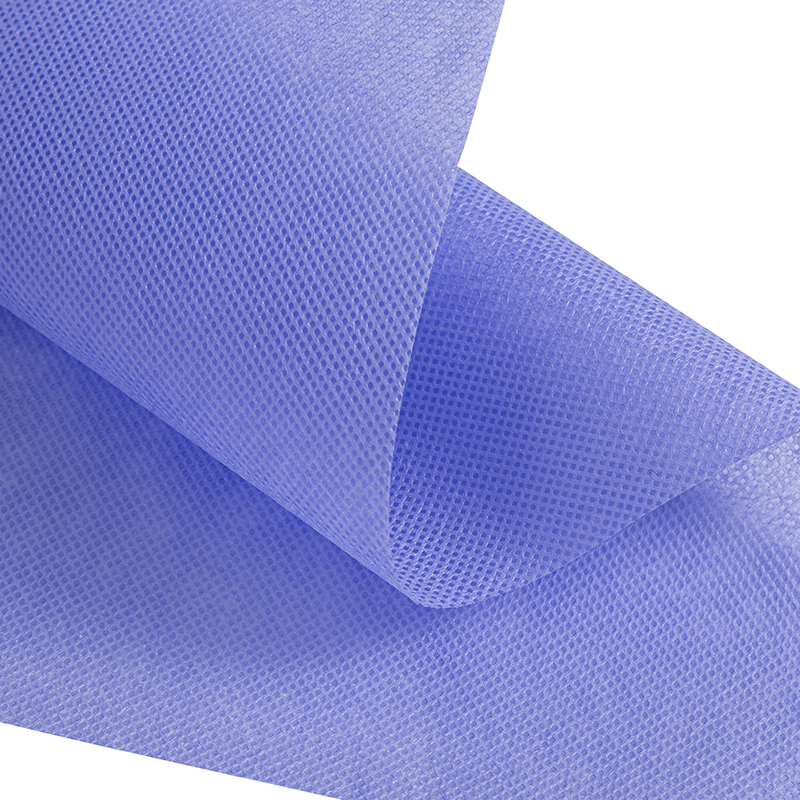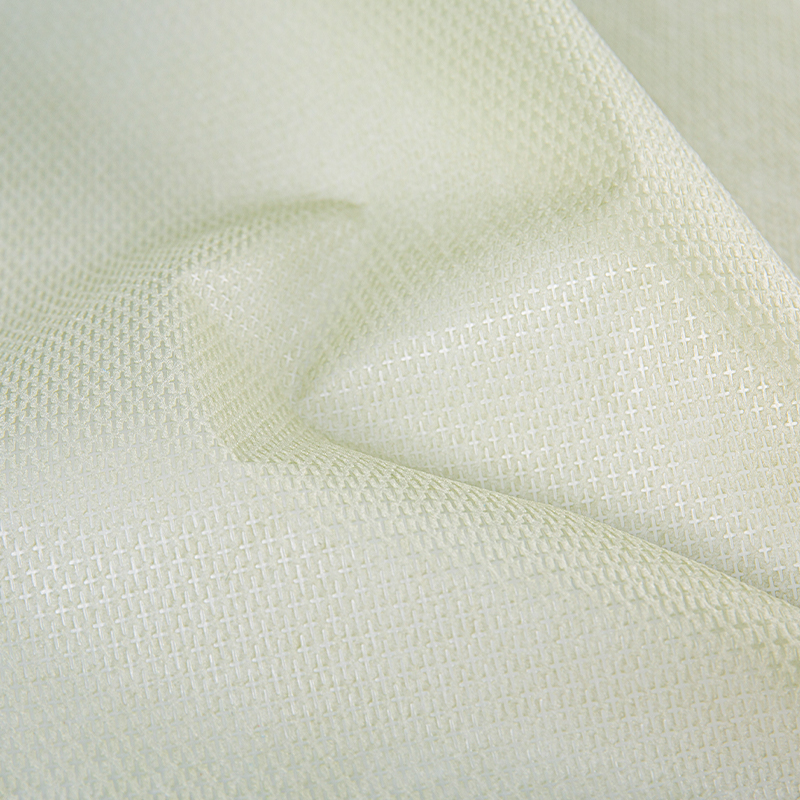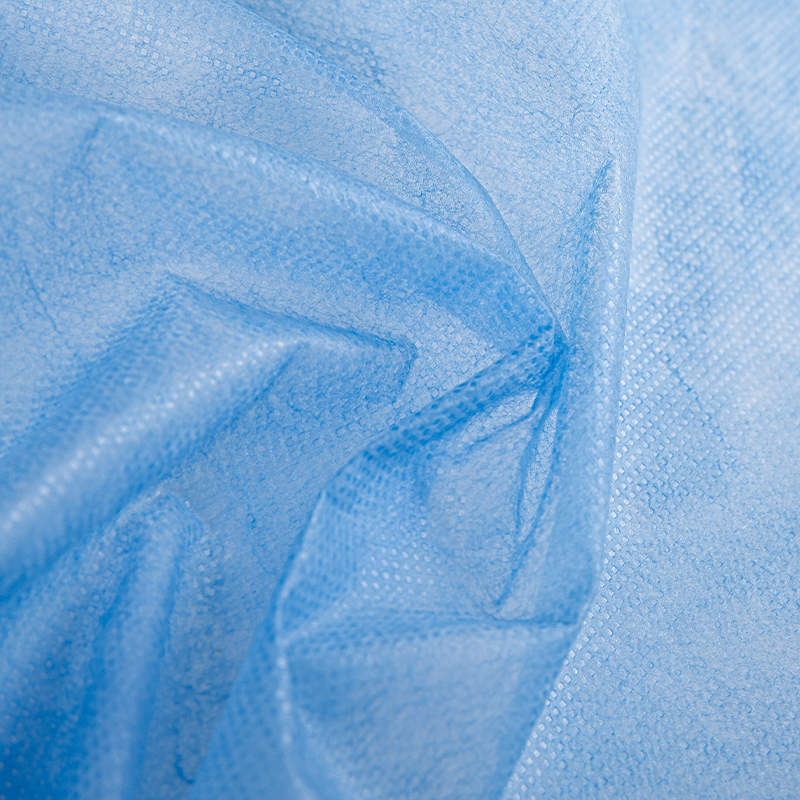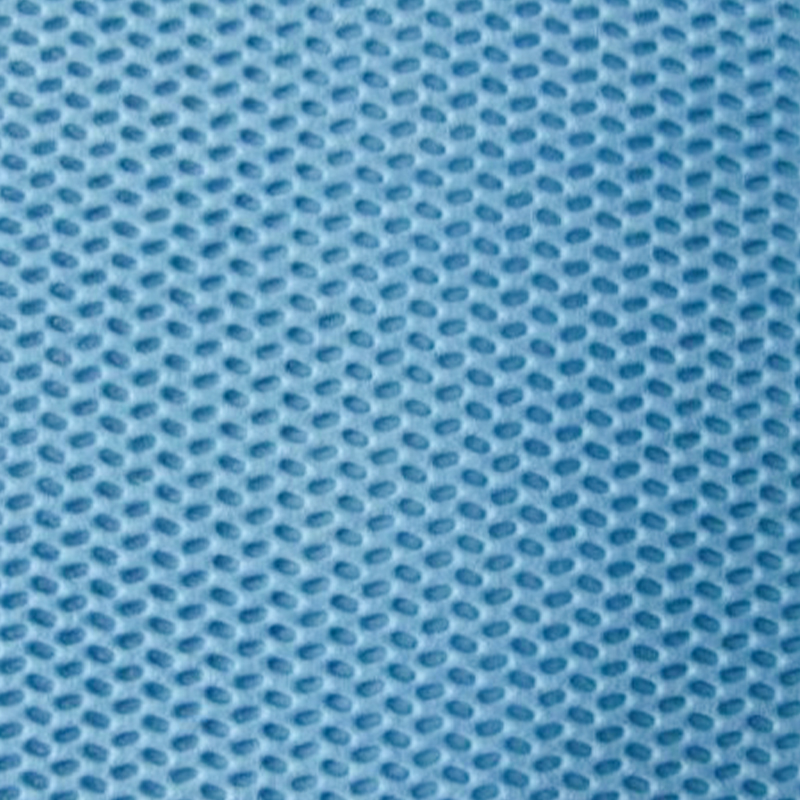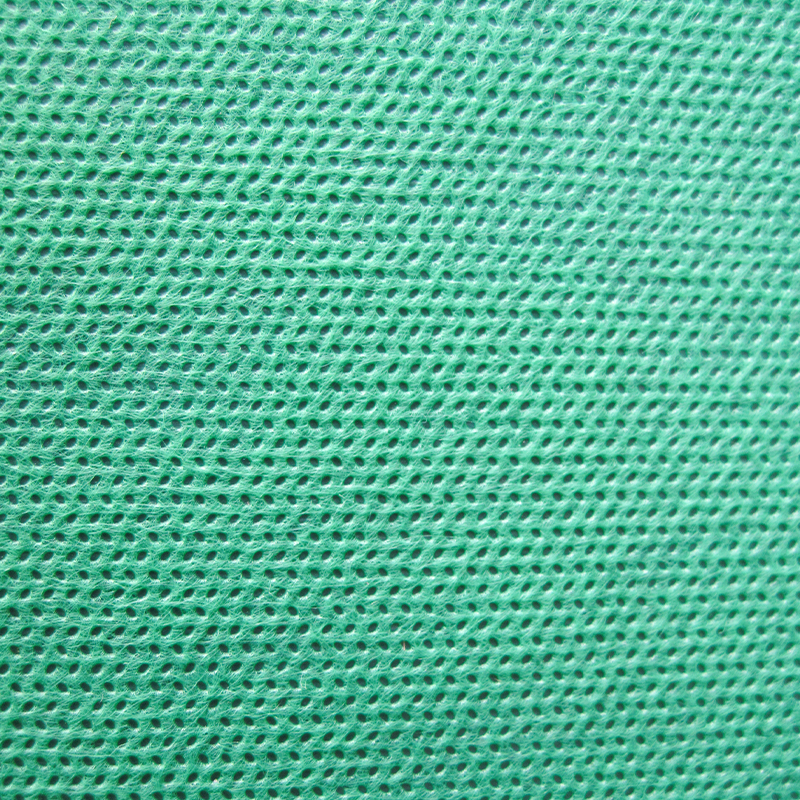The global demand for synthetic textiles has driven significant innovations in thermoplastic polymer extrusion. At the heart of this industrial shift is the PP non-woven fabric making machine. This equipment utilizes the spunbond process to convert polypropylene granules into high-strength, breathable fabrics used in m...
READ MORECustom Sesame Pattern PP Non-Woven Fabric Manufacturers
-
Colorful Sesame PP Spunbond Nonwoven Interlining Fabric
The colorful waterproof sesame pattern PP spunbond nonwoven interlining is a functional nonwoven material made of polypropylene (PP) through spinning,...
-
Sesame Spot Spunbond Polypropylene Non Woven Interlining Fabric
Sesame pattern spunbond polypropylene hydrophilic lining nonwoven fabric is a functional nonwoven material made by spunbonding process with polypropyl...
Spunbond PP sesame pattern non-woven fabric is an environmentally friendly non-woven fabric material made of polypropylene (PP) with good air permeability, softness and durability. Its surface adopts sesame dot pattern design, which not only increases the aesthetics of the product, but also improves its comfort and functionality during use. The product is made by spunbond process, that is, the polypropylene raw material is first melted and drawn into a mesh, and then the fibers are bonded by hot rolling to form a cloth with high strength and good elasticity. Spunbond PP sesame pattern non-woven fabric is non-toxic and harmless and is suitable for a variety of fields, including medical, industrial, agricultural and packaging. It has good antibacterial, antistatic, acid and alkali resistance and heat insulation properties, as well as good waterproofness and air permeability. It is suitable for making disposable sanitary products, medical protective clothing, shoe leather lining, automotive interior materials and environmentally friendly bags. In addition, the product can be customized according to customer needs, including color, weight, width and texture, etc., to meet the needs of different application scenarios.
Founded in 1999, Jiangyin Jingang Nonwoven Co., Ltd. is
China Custom Sesame Pattern PP Non-Woven Fabric Manufacturers and
.Jingang is a professional enterprise specializing in the research, development, and manufacturing of nonwoven materials and supporting equipment. Located in Jiangyin, Jiangsu Province, China, the company offers a wide range of products including PP spunbond and meltblown nonwovens, which are widely used in industries such as automotive, agriculture, packaging, and deep glass processing.In addition to nonwoven materials, we independently design and manufacture a variety of specialized machinery, including nonwoven production lines, CNC glass edging machines, and printing equipment—dedicated to providing customers with systematic and automated production solutions.

Over the past 26 years, we have remained committed to technological innovation and quality control. In 2002, we successfully developed German-style spunbond technology, improving the stability and efficiency of domestically produced equipment. In 2009, we launched CNC edging machines for shaped glass, expanding the application scope of glass processing. These milestones have played a key role in positioning our company at the forefront of the industry.
We have established a sound quality management system and strictly implement multi-stage inspection processes to ensure our products meet international standards. Through flexible customization, professional technical support, and reliable delivery capabilities, Jiangyin Jingang has built long-term partnerships with clients at home and abroad, earning a solid reputation in the market.We will continue to provide reliable products, strong technical expertise, and practical services to deliver more efficient and sustainable solutions to customers around the world.
-
-
In the evolving landscape of sustainable textiles, Checkered PP Non-Woven Fabric has emerged as a high-performance material that bridges the gap between aesthetic appeal and structural integrity. Engineered primarily through the spunbond process, this fabric utilizes 100% virgin polypropylene (PP) resins to create a we...
READ MORE -
Sesame Pattern PP Non-Woven Fabric, characterized by its distinctive textured surface resembling sesame seeds, is a specialized variant of polypropylene non-woven material. Its unique manufacturing process creates a pattern that significantly enhances its functional properties, making it a standout choice for demanding...
READ MORE
How Sesame Pattern PP Non-Woven Fabric Enhances Durability and Breathability in Packaging Solutions
Sesame Pattern PP Non-Woven Fabric has become increasingly popular in packaging applications due to its exceptional combination of durability, flexibility, and breathability. The fabric's unique sesame-like texture not only provides a visually distinctive appearance but also enhances mechanical strength, allowing it to withstand heavy loads, resist tearing, and maintain structural integrity over long-term use. These characteristics make it ideal for packaging fragile, perishable, or heavy goods that require reliable protection.
The patterned surface creates micro-ventilation channels, promoting airflow and moisture regulation. This feature is particularly valuable for packaging perishable items such as fresh produce, textiles, or electronics, where preventing condensation and maintaining product quality are critical. The lightweight nature of polypropylene (PP) ensures that the fabric adds minimal bulk, reducing shipping costs while preserving strength and protection.
Jiangyin Jingang Nonwoven Co., Ltd., founded in 1999, specializes in the production of high-quality nonwoven materials using advanced spunbond and meltblown technologies. By controlling parameters such as fiber diameter, fabric weight, and tensile strength, the company produces Sesame Pattern PP Non-Woven Fabrics that meet stringent performance requirements for industrial, agricultural, medical, and packaging applications. The company also develops customized production lines and equipment to optimize efficiency and maintain consistent quality.
In addition to its mechanical advantages, Sesame Pattern PP Non-Woven Fabric is environmentally friendly. Its recyclability and lightweight design reduce material consumption and waste, aligning with global trends toward sustainable packaging. Flexible customization allows the fabric to be used in bags, wraps, covers, and other packaging forms without compromising structural integrity or breathability.
Key Parameters of Sesame Pattern PP Non-Woven Fabric
| Parameter | Typical Range / Value | Description |
|---|---|---|
| Fabric Weight | 20 - 150 g/m² | Determines the thickness and strength of the fabric for different packaging needs |
| Tensile Strength | 150 - 600 N/5cm | Indicates the force the fabric can withstand before breaking |
| Elongation | 15 - 50% | Measures the fabric's stretchability and flexibility |
| Air Permeability | 50 - 300 L/m²/s | Reflects breathability, important for perishable product packaging |
| Water Resistance | Low to Medium | Prevents liquid penetration while maintaining airflow |
| Width | 1 - 3 m | Customizable to fit various packaging machinery and applications |
By combining these physical properties with advanced production techniques, Sesame Pattern PP Non-Woven Fabric offers a reliable, efficient, and sustainable solution for modern packaging requirements. Its ability to protect goods, regulate airflow, and reduce material usage makes it an ideal choice for a wide range of industries, from agriculture to medical and consumer goods packaging.
Selecting the Right Sesame Pattern PP Non-Woven Fabric for Your Manufacturing Needs
Choosing the right Sesame Pattern PP Non-Woven Fabric for manufacturing applications requires careful evaluation of material properties, production requirements, and end-use scenarios. This fabric combines the lightweight and durable characteristics of polypropylene with a distinctive sesame-like texture, providing enhanced tensile strength, flexibility, and breathability. Selecting the appropriate specifications ensures that the material meets both operational demands and product performance expectations.
In industries such as automotive, agriculture, packaging, and glass processing, the choice of nonwoven fabric has a direct impact on product quality and manufacturing efficiency. For packaging, fabrics that balance durability with ventilation help protect goods while reducing the need for additional layers. Automotive and filtration applications require fabrics with high tensile strength, consistent surface quality, and controlled thickness. The sesame pattern provides structural reinforcement and functional advantages, including controlled airflow, moisture regulation, and improved wear resistance.
Founded in 1999, Jiangyin Jingang Nonwoven Co., Ltd. specializes in producing high-quality PP spunbond and meltblown nonwovens and designing customized production equipment. With advanced spunbond technology introduced in 2002 and strict quality control systems, the company ensures fabrics meet international standards. Their expertise allows manufacturers to select fabrics tailored to specific requirements, supported by customization, technical guidance, and automated production solutions.
Key Parameters of Sesame Pattern PP Non-Woven Fabric
| Parameter | Typical Range / Value | Description |
|---|---|---|
| Fabric Weight | 20 - 150 g/m² | Determines thickness, durability, and suitability for different applications |
| Tensile Strength | 150 - 600 N/5cm | Measures resistance to tearing and mechanical stress |
| Elongation | 15 - 50% | Indicates flexibility and stretchability for various processing methods |
| Air Permeability | 50 - 300 L/m²/s | Reflects breathability, critical for packaging perishable goods |
| Water Resistance | Low to Medium | Provides protection against moisture while maintaining airflow |
| Width | 1 - 3 m | Customizable to match production machinery and end-use requirements |
By understanding these key properties and working with experienced suppliers like Jiangyin Jingang, manufacturers can select the optimal Sesame Pattern PP Non-Woven Fabric to maximize production efficiency, product durability, and end-product performance. Tailored fabrics help meet specific application requirements, whether in industrial, agricultural, packaging, or specialized processing environments, while supporting sustainable and cost-effective manufacturing solutions.


 English
English  русский
русский  Español
Español 
